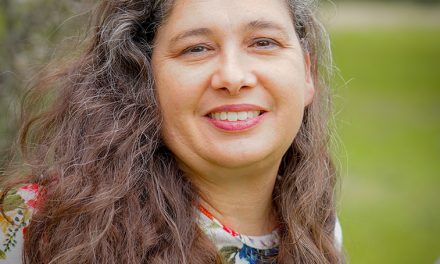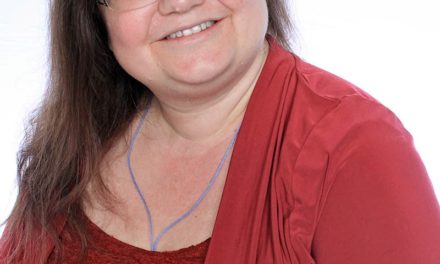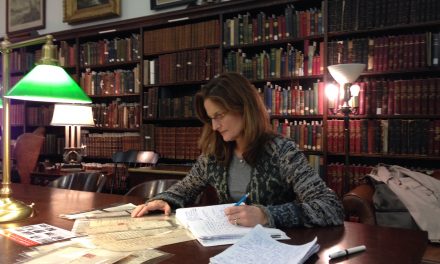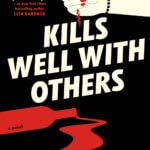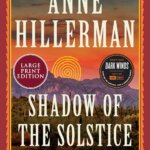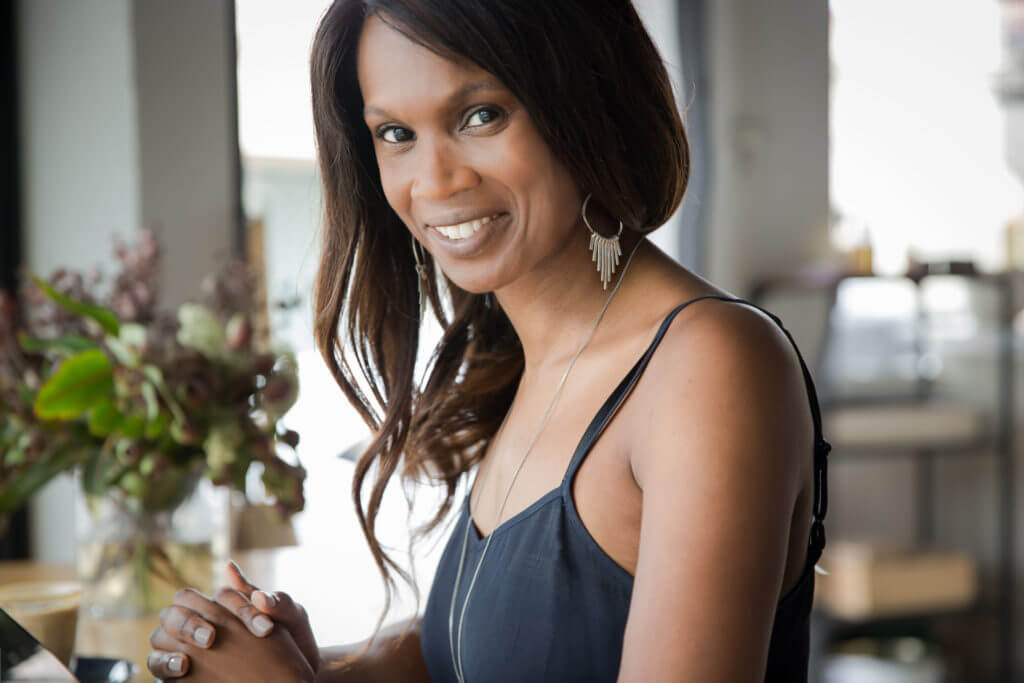
An avid reader, Ellis always knew that she’d write a book of her own one day. She was right about that. Following a career spanning advertising, marketing, and social media, she finally wrote her debut novel, Catching London in 2017 and has since gone on to publish a further three novels, the latest of which, Finding Marnie, releases on February 12 and is currently available for pre-order.
SS: When I read other authors’ biographies, I worry mine is dishwater-dull. How do you feel about your life story? Have you ever been tempted to jazz yours up?
MVE: Ha! I have actually had the conversation with my mother that if either of us ever documented some or all of the wild and wonderful things that have happened in our family and circle of friends over the years, other people would accuse us of having over-active imaginations. Honestly, this is definitely a case of the truth being stranger than fiction. So no, if anything, I’d be tempted to tone things down, not jazz them up.
SS: Writing is undoubtedly a lonely occupation. John Green (The Fault in Our Stars) says writing is a profession for introverts who want to tell you a story but don’t want to make eye contact while doing it. P. D. James (Cover Her Face) says it’s essential for writers to enjoy their own company. Do you see yourself along those lines? Are you a natural loner?
MVE: I’d say I’m an ambivert. I grew up an only child (I have younger half- siblings I didn’t know growing up), and naturally spent a lot of time alone. In fact, reading was one of my main pastimes. As such, I’m naturally comfortable with my own company, and do not find it difficult to amuse myself alone. I can also be quite outgoing and sociable, but I definitely have my limits. I love being around other people until I don’t, then I can’t get away fast enough!
SS: Could you say something about your relationship to your fictional characters? How autobiographical do you think your fiction is?
MVE: As I mentioned, I’ve had a varied and colorful life, so I have many true stories to draw from in my writing. However, though I pull inspiration from people I’ve known and real life events, none of my characters are based directly on any one person. For example, my first series, the Heartless Few is based on the five members of a leading rock band.
While I’ve based parts of each of the characters and some of the events in those books on people I’ve met and things I’ve seen and heard while touring with various bands with my musician husband, none is based on one specific person. Not that I would say if they were. As an author, I never kiss and tell.
SS: What are you working on at the moment?
MVE: Life is most certainly busy. I’m currently working on the first in a new and exciting series I can’t say too much about right now, as well as beginning the fifth installment of my Heartless Few series. This book will focus on Stevie, the band’s troubled drummer as he fights his demons—both internal and external, in search of his happy ever after.
SS: Do you believe you write the kind of book you’d want to read?
MVE: I honestly can’t imagine writing any other way. Just a as chef prepares food they’d want to eat, and a designer creates clothing they’d want to wear, as a writer I think it’s most natural to write what I’d want to read. For me writing is about taking people on a journey and entertaining them along the way. It’s far easier for me to do that if I’m on that same journey, experiencing the highs and lows, tears and laughter in the same way a reader would.
SS: Do you know the ending to your story when you put pen to paper? If so, have you ever changed the ending after you started to write?
MVE: I write romance, so it’s pretty much a given that there will be a happy ending. The skill, in my opinion, is in the journey the characters take from point A where they are not in love with each other (or not in a position to act on their love), to point B, being the happy ever after. My aim is to make the journey as emotionally engaging as possible.
SS: How do you make your readers regret that they’re coming to the end?
MVE: I try extremely hard to construct my stories in such a way that the path to the happy ending is as unpredictable and emotionally charged as possible. I want to induce what is often referred to a ‘book hangover,’ where the story leaves the reader in a heightened state of emotion. That and the idea of always leaving people wanting more I believe, has readers not wanting to turn the last page.
SS: Do you hear from your readers much? Where do you interact with them the most? What kinds of things do they say?
MVE: I’m fortunate enough to have some wonderful readers who take the time to reach out to me and let me know how much they appreciate my books, both via social media and via email. I can’t tell you how much I appreciate hearing from readers in this way. Writing can be lonely work—I write at home, mostly late at night when my family is asleep—and it can sometimes feel like speaking into an echo chamber when you release books, but have no contact with the intended recipients. Those times when you receive great feedback like that make it all worth it.
SS: What’s something memorable you have heard from your readers/fans? What’s been the best compliment?
MVE: Connected to the point above, the best compliment so far has been a reader who told me that whatever I write, she’ll read and know she’ll enjoy it. To quote her: “You speak my language.” That’s a pretty huge compliment in my eyes. Writing is all about communication—I’m passing on my take on the world to other people in the form of words, and hoping they enjoy it enough to considerate entertainment. When I score an ace like that, it reminds me that I’m on the right track.
SS: What’s the most difficult thing about writing characters of the opposite sex?
MVE: I guess like any characterization, getting into someone else’s headspace or psyche is hard. I can’t say I feel that I have more difficulty thinking on behalf of a male character than a female, but now and again I do have to tweak the language I’d naturally use when writing a woman to more accurately depict a male character.
On the other hand, it can also be easy to fall into the trap of using stereotypes or clichés when you don’t have personal experience to draw on when writing a character, which is something I’m cognizant of trying hard not to do.
That said, at the end of the day, people are just people. Despite the nuances between us all, our basic needs and desires are more similar than they are different. My job as writer is to convey those needs and desires in a distinctive and convincing voice, whether the character is male or female.
SS: How important are romance tropes? Do you ever feel the need to break free of their constraints?
MVE: Tropes don’t guide my writing, but I have no doubt that they are present nonetheless. I don’t write to conform to tropes, not do I write to break them, either. I write the story that makes most sense to me, and that I feel other people would want to read, and will be entertained by. I’m not a major plotter, so a believe in taking the story where it feels good for it to go.
As tropes are many and varied, the chances are that in doing that, I’ll tick off a few along the way, and I’m fine with that. I think ultimately tropes are handy markers for readers to get a sense of what a story is about, but they by no means help readers know how a specific author has approached that particular trope. A case in point is that though my Heartless Few books are rock star romances—rock star being a common trope—the fact is that they don’t necessarily confirm to the standard practices of many books in the genre. This can be a double-edged sword as it can turn off some readers, while pleasantly surprising others.
SS: Do you believe in real-life happily-ever-afters?
MVE: You’re talking to a woman knows what it’s like to fall head over heels in love with a badass musician. I followed my heart halfway around the world to be with one, moving from London to Sydney after a steamy holiday romance with a sexy bass player in sultry Brazil—a man I sat next to on a bus for thirty six hours—and have never looked back. Fourteen years, two children, and a dog later, and I’m still smitten. I’ve toured internationally as a ‘WAG’, and those experiences inspire my writing. I have to believe in happily-ever afters. I’m living mine.
********************
Catching London, Cold, Hard and Heartless, and Pushing Arlo are available from Amazon. Finding Marnie is available for pre-order, also on Amazon.
********************
Excerpt from Finding Marnie:
I didn’t know if everyone could pinpoint the exact moment their life changed forever, that one defining moment that sealed their fate and made them who they are. I could.
It was a Tuesday in April, just after Easter. I was thirteen. I had woken up and gotten ready for school alone and in silence, as usual. I wasn’t sure if my parents were home. Silence meant they’d be out cold, sleeping off the effects of the night before, or they were still out, and as far as they were concerned, the new day hadn’t even started yet. It made no material difference to me either way, so I never concerned myself with their presence or, more likely, their absence.
I‘d been seconds away from leaving when I remembered I’d left my calculus book in the kitchen the previous evening, as I puzzled over my homework while I ate. Alone. And in silence.
As I rushed into the living room on my way to the kitchen, right away I’d known something was wrong. There had been an eerie stillness, and the air felt thick or heavy. I couldn’t put my finger on it, but something definitely felt off. I edged cautiously into the room, and then I saw it. My mom’s skeletal arm resting on the side of the couch. I knew then that something was very badly wrong. On the rare occasions that my parents were home and functioning, if it could even be called that at this time of day, it was always chaos. Neither could keep still for a moment. There would be pacing, cursing, yelling, and general high drama. About money. About drugs. About money for drugs. About each other. I never knew the exact details—I tried to make myself as scarce as possible. The TV would often be blaring, along with music, adding to the confusion.
Silence in this circumstance could only mean no good.
“Mom?”
No answer.
“Mom?” I continued my slow, wary approach toward the couch, knowing I shouldn’t, that I wasn’t going to like what I saw when I got there. However, I found myself compelled to approach regardless. Stupid. It was like when I saw a quick movement on the other side of the room from the corner of my eye, and even while my brain told me not to look, my eyes automatically headed that way before I could stop them. It was always something gross like a roach or spider that I would much rather not have seen but then couldn’t ignore.
I edged closer.
“Mom?”
I was now level with the couch, but I avoided turning toward it, fearing that what I saw would be far worse than an insect or arachnid. When I dared to look, my suspicions were confirmed. I gasped, closing my eyes, hoping that when I opened them, the vision before me would have disappeared as though it had all been just a terrible mirage. Sadly, when I dared to peek through half-closed eyelids, the horrific scene remained. I didn’t know it then, but it was to haunt my sleeping and waking dreams for the rest of my life.My mom and dad were dead. I knew it as sure as I knew my name was Marnie. My mom’s right arm gripped the side of the couch tightly—I guess that was the true meaning of a death grip. Her left arm was linked with my dad’s. Her spindly fingers were intertwined with his equally starved digits. Her head was tipped back, bloodshot eyes open and rolled back in her head. Her skin was a lifeless gray color, her lips were blue, and there was a thick, dark brown substance below her nose. Dried blood? My father was slumped forward, the hand not holding my mom’s resting on his knee, his head between his legs. Both arms were ashen. I was glad to have been spared seeing the ravages that death had wrought on his face, but I knew he was dead.




